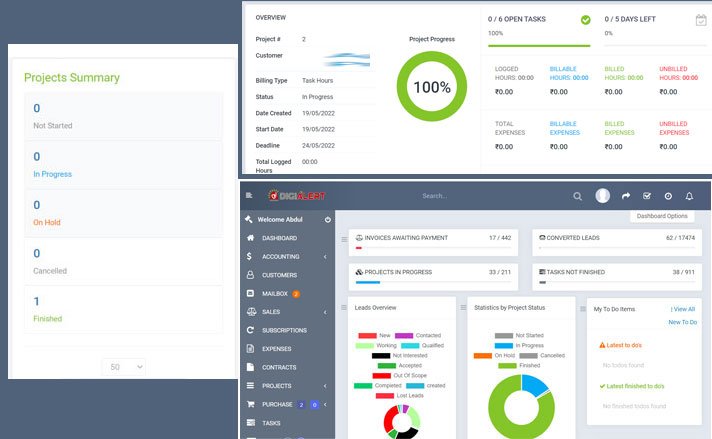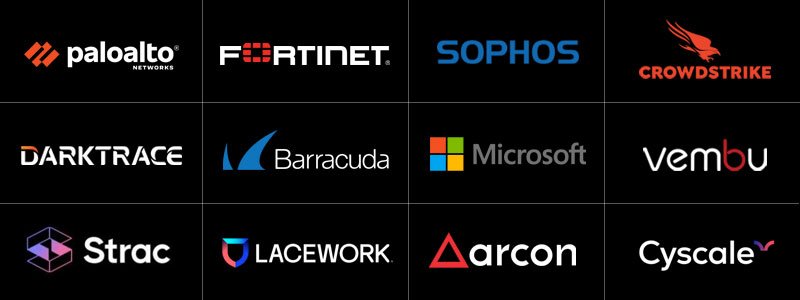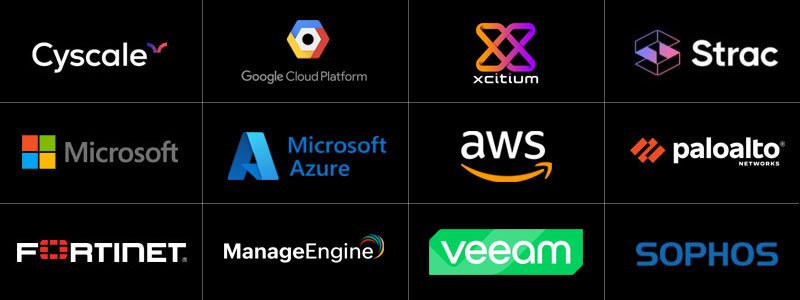Cyber Security Toolkit for Startup
"Why call a plumber when you can call a SOC service? They'll fix all your security leaks and pipes!"
Cyber Security Toolkit for Startup
WHAT IS
Cyber Security Toolkit for Startup
At digiALERT, we understand the crucial role that a robust cyber security toolkit plays in protecting our network, devices, and data from potential threats. Our toolkit encompasses a diverse range of technologies such as firewalls, intrusion detection/prevention systems, encryption, and two-factor authentication to control access and monitor for potential threats. These tools help us keep our system secure at all times.
In order to identify and address vulnerabilities in our system, we conduct regular security assessments and penetration testing. These assessments include vulnerability scans, threat modeling, and penetration testing, which enable us to identify potential weaknesses and provide guidance on how to fix them.
In the event of a security breach, our incident response plan is in place to minimize the damage and help us return to normal operations as quickly as possible. The plan includes steps to identify the incident, contain it, eradicate the threat and recover from it.
We place a significant emphasis on employee training, providing them with regular security awareness training to help them understand the potential risks and how to identify and report suspicious activity. Our employees are an essential component of our security strategy.
Speak to an expert
key features
Cyber Security Toolkit for Startup
Types of
Cyber Security Toolkit for Startup
we at digiALERT provide a variety of cyber security toolkits to meet the needs of our clients. Some of the types of toolkits we offer include:
-
Network security toolkit: This toolkit includes firewalls, intrusion detection/prevention systems, and other tools to protect the network from unauthorized access and potential threats.
-
Data security toolkit: This toolkit includes encryption and other tools to protect sensitive data from unauthorized access and potential breaches.
-
Identity and access management toolkit: This toolkit includes tools for managing user identities and access to resources, such as two-factor authentication and single sign-on solutions.
-
Compliance toolkit: This toolkit includes tools and services to help our clients comply with regulations such as GDPR, HIPAA, and SOC 2.
-
Incident response and disaster recovery toolkit: This toolkit includes tools and services to help our clients respond to and recover from security incidents and disasters.
-
Endpoint security toolkit: This toolkit includes antivirus and anti-malware software, email and web filtering, and other tools to protect endpoints such as laptops and mobile devices.
-
Cloud security toolkit: This toolkit includes tools and services to secure cloud infrastructure and protect data in the cloud.
-
Penetration testing toolkit: This toolkit includes tools and services to conduct regular security assessments and penetration testing to identify and address vulnerabilities in the system.
Statistics on
Cyber Security Toolkit for Startup
Speak to an expert
How do we do
Cyber Security Tool Kit for Startup
First, we begin by conducting a thorough assessment of the client's current security posture, identifying vulnerabilities and potential threats. This helps us understand their specific needs and tailor our toolkit accordingly.
Next, we implement a variety of tools and technologies such as firewalls, intrusion detection/prevention systems, encryption, and two-factor authentication. These tools help our clients to control access and monitor for potential threats, ensuring that their system remains secure.
We also conduct regular security assessments and penetration testing for our clients, to identify and address vulnerabilities in their system. This includes vulnerability scans, threat modeling, and penetration testing. These assessments help us to identify potential weaknesses and provide guidance on how to address them.
In the event of a security breach, we help our clients establish incident response plans to help them identify the incident, contain it, eradicate the threat and recover from it. This helps to minimize the damage and return to normal operations as quickly as possible.
We also place a strong emphasis on employee training for our clients, providing them with security best practices and regular security awareness training. This ensures that their employees are aware of the potential risks and know how to identify and report suspicious activity.
WHY Cyber Security Tool Kit for Startup
WHO NEEDS Cyber Security Tool Kit for Startup
Cyber security is a critical concern for all businesses, but it is especially important for startups. Startups have limited resources and often operate in a fast-paced and dynamic environment, making them particularly vulnerable to cyber threats. A cyber security toolkit is essential for startups to protect their network, devices, and data from potential threats and to ensure the continuity of their business operations.
A cyber security toolkit for startups includes a variety of tools and technologies such as firewalls, intrusion detection/prevention systems, encryption, and two-factor authentication. These tools help startups to control access and monitor for potential threats, ensuring that their system remains secure. It also includes regular security assessments and penetration testing, incident response plans, employee training, antivirus and anti-malware software, email and web filtering, and compliance with regulations such as GDPR, HIPAA, and SOC 2.
All startups who have an online presence, store sensitive information, or process payments are in need of a cyber security toolkit. Even if you are not storing sensitive information, being hacked can ruin your reputation and make it difficult to win customers' trust. Furthermore, many industries have regulations in place that require companies to take certain security measures to protect their clients' data. Failure to do so can result in significant fines.
How often Cyber Security Tool kit for Startup recommended
When it would be performed
The frequency of a cyber security toolkit for startups is recommended to be performed on a regular basis. The exact schedule will depend on the specific needs of the startup and the level of risk they are facing.
A general rule of thumb is to conduct a security assessment at least once a year. This assessment includes vulnerability scans, threat modeling, and penetration testing. It helps to identify potential weaknesses and provide guidance on how to address them. This will ensure that the startup's security posture is up-to-date and that any new vulnerabilities have been identified and mitigated.
Another important aspect of a cyber security toolkit is incident response planning. This should be reviewed and updated regularly, at least once a year, to ensure that the plan is current and that all employees are familiar with the procedures. It should be tested periodically to ensure that it is effective and that employees are familiar with it.
Employee training is also an important component of a cyber security toolkit for startups. Employees should be trained on security best practices and regular security awareness training. This should be done at least once a year or whenever new employees are added to the team.
Regular software updates and patches should be applied to all systems and devices to ensure that they are protected against known vulnerabilities. These updates should be applied as soon as they become available, to ensure that the startup's systems are protected against known threats.
Speak to an expert
How are we
unique
-
Tailored approach: We take a comprehensive and tailored approach to meet the specific needs of each startup client and their unique business requirements.
-
Regular assessments: We conduct regular security assessments and penetration testing to identify and address vulnerabilities in the system.
-
Incident response planning: We help our clients establish incident response plans in the event of a security breach, to minimize damage and return to normal operations as quickly as possible.
-
Employee training: We provide employee training for our clients on security best practices and regular security awareness training to ensure their employees are aware of the potential risks and know how to identify and report suspicious activity.
-
Compliance: We make sure that our clients comply with regulations such as GDPR, HIPAA, and SOC 2 to ensure that they are meeting industry standards and regulations, and that they are taking the necessary steps to protect sensitive information.
-
Ongoing support: We provide ongoing support to help our clients stay protected and ensure their systems are secure.
-
Personalized service: We work closely with our clients to understand their specific needs and tailor our toolkit accordingly.
-
Latest technology: We use the latest technologies and tools in providing the cyber security toolkit for startups to ensure the best protection for the clients.
-
Competitive pricing: We offer competitive pricing for our services, making cyber security accessible for startups.
-
Flexibility: We offer flexibility in our services, allowing startups to choose the services that best suit their needs and budget.













 ISO/IEC 27001:2022
ISO/IEC 27001:2022 ISO/IEC 27001:2022
ISO/IEC 27001:2022 ISO/IEC 20543:2019
ISO/IEC 20543:2019 ISO/IEC/IEEE 29119-5:2024
ISO/IEC/IEEE 29119-5:2024 CSA Certificate
CSA Certificate Incorporation
Incorporation Makeinindia
Makeinindia Authorized partner
Authorized partner MSME Chennai
MSME Chennai digiALERT Tan
digiALERT Tan GST Chennai
GST Chennai Pancard
Pancard Amended GST
Amended GST